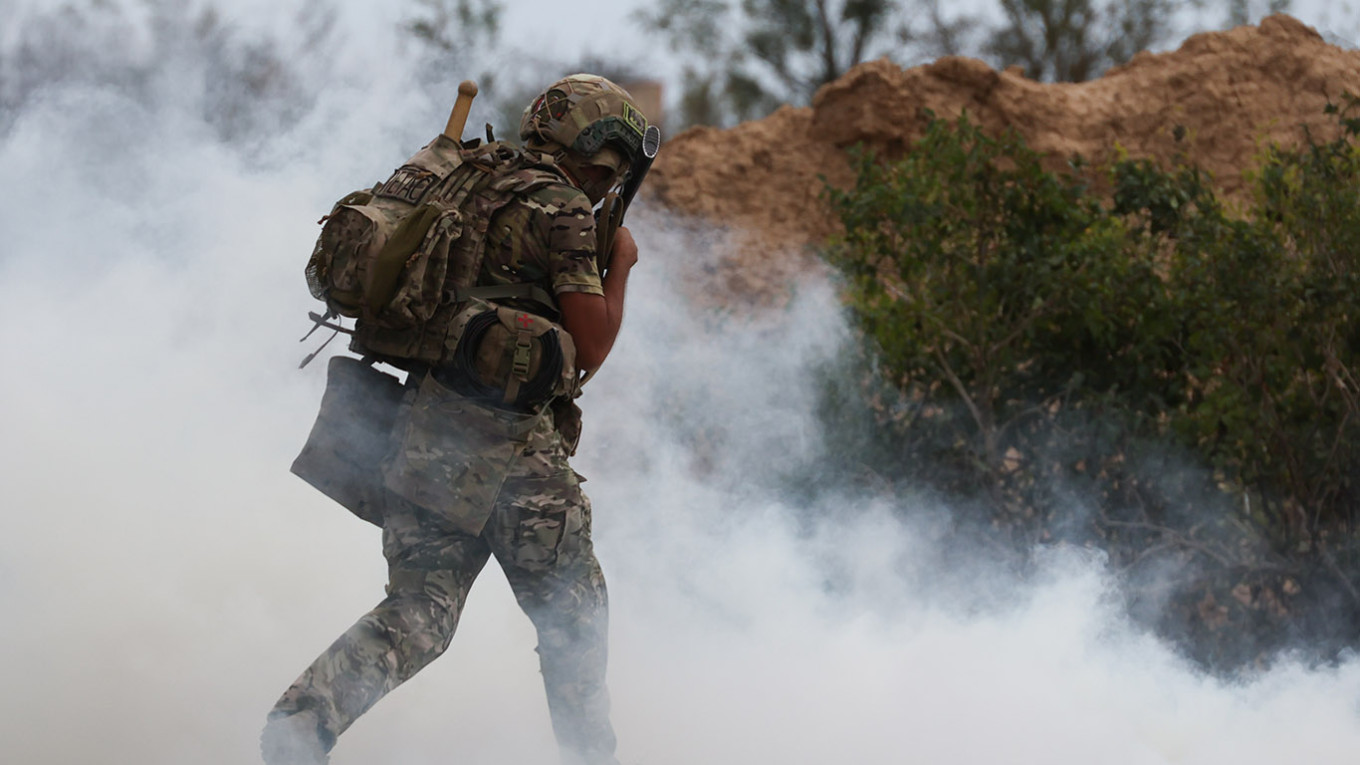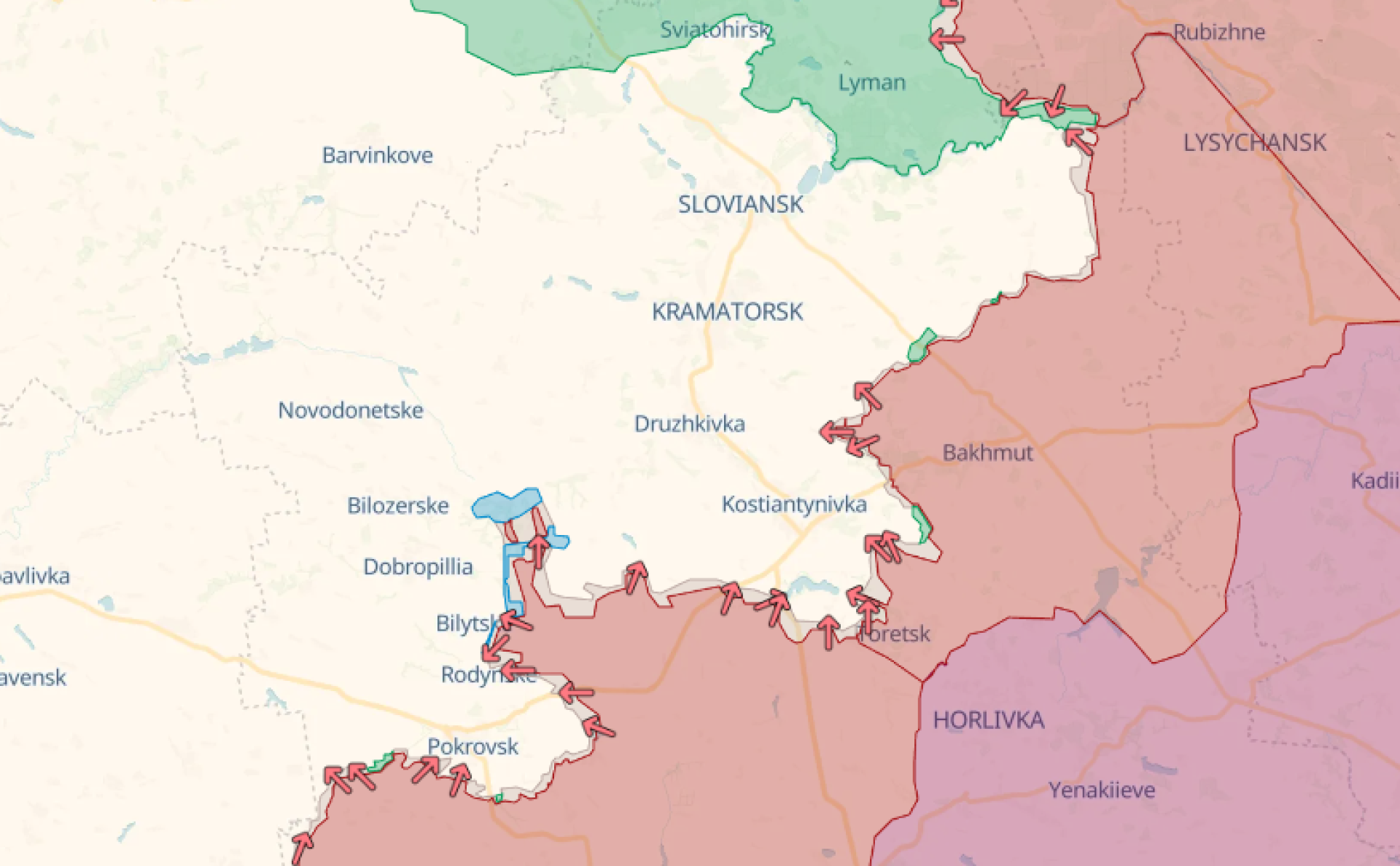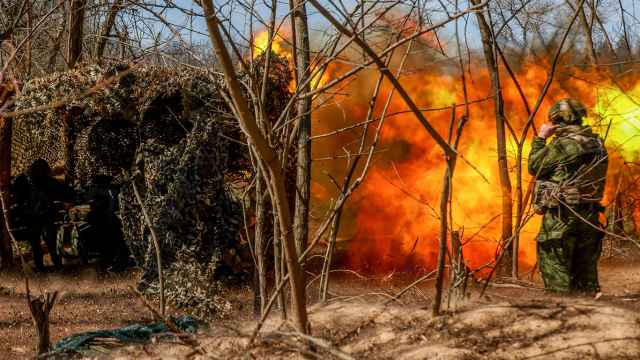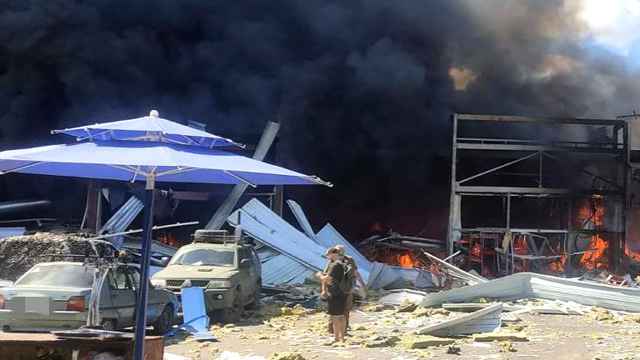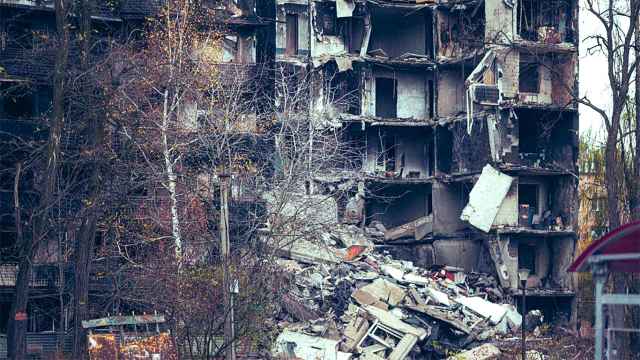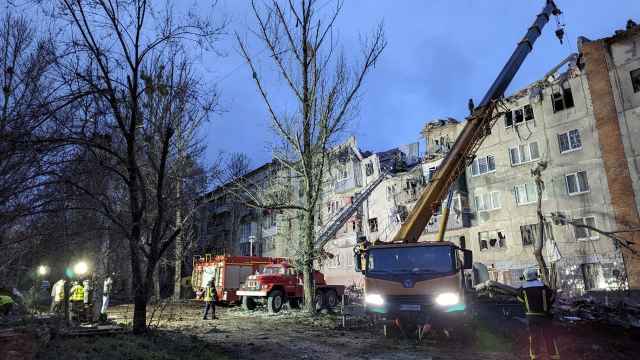Russian forces are pressing ahead in eastern Ukraine, making incremental but closely watched advances in the Donetsk region as the Trump administration struggles to broker a peace deal between Moscow and Kyiv.
The most visible push came earlier this month near the town of Dobropillya, in northern Donetsk, where Russian troops surged forward on two prongs resembling bunny ears.
That maneuver captured headlines as Russia’s fastest advance in months, but military experts say the gains have not translated into firm control. Ukrainian defenses have blunted further progress, and Moscow has struggled to consolidate positions.
“Their task is not to fight the Ukrainians head-on, but to push as far forward as possible… in the hope that someone breaks through,” military analyst Alexei Alshansky told The Moscow Times. “It results in heavy losses.”
An independent count by the exiled news outlet Mediazona and the BBC’s Russian service put confirmed Russian military deaths above 120,000, though the real toll is believed to be much higher.
Russia already controls about 70% of Donetsk, including the regional capital seized by pro-Kremlin separatist forces in 2014. What remains in Ukrainian hands carries enormous strategic weight, which many believe is the reason President Vladimir Putin is pressing for Kyiv to relinquish it as part of a possible peace agreement.
Kyiv has fortified a belt of cities running roughly 50 kilometers (30 miles) from Slovyansk and Kramatorsk in the north to Druzhkivka and Kostyantynivka further south, turning them into a hardened barrier against further Russian advances.
The loss of these positions, whether through fighting or a peace agreement, would be a major blow, said Alshansky, noting the years of resources Ukraine has poured into the defenses.
“If Russia manages to get its hands on defense positions with undestroyed, ready-made [fortifications], and without even putting up a fight, then it will obviously use them as a springboard for a future war,” he said.
Pokrovsk, a city west of the current front lines that serves as a logistics hub for Ukrainian troops, is also under pressure. Russian military bloggers and analysts at the U.S.-based Institute for the Study of War (ISW) have pointed to intensified Russian attacks there, suggesting Moscow is probing for weaknesses.
Still, experts caution against overstating recent momentum on the battlefield.
Yury Fedorov, another military analyst, argued that Russia’s primary focus remains the area around Lyman, northeast of Krematorsk and Slovyansk, where its forces are testing Ukraine’s network of fortifications. Yet, he added, the front lines have remained largely static.
Elsewhere, Russia has continued smaller-scale assaults in the Zaporizhzhia and Kherson regions. Ukraine warned this month that Moscow is redeploying troops there in preparation for another push.
But in both regions, rivers and difficult terrain have made large offensives harder to sustain, particularly in the era of drones that can strike bridges and crossing points, Alshanksy told The Moscow Times.
The incremental advances shed light on the challenges posed by Moscow’s reliance on what analysts call “small infantry group tactics.” Instead of mass assaults, two or three soldiers may attempt to infiltrate Ukrainian lines along separate routes, as is believed to have happened in the push near Dobropillya this month. If any succeed, reinforcements are sent in behind them.
While that tactic has allowed Russia to inch forward in some places, ISW notes that it leaves troops exposed to counterattacks.
For now, Ukraine’s objective is to delay Russian progress at every opportunity, analyst Fedorov argued, stretching the war out as both sides wait to see whether time or external political pressure will shift the balance. “Both sides are engaged in what can only be described as a race against time,” he said.
A Message from The Moscow Times:
Dear readers,
We are facing unprecedented challenges. Russia's Prosecutor General's Office has designated The Moscow Times as an "undesirable" organization, criminalizing our work and putting our staff at risk of prosecution. This follows our earlier unjust labeling as a "foreign agent."
These actions are direct attempts to silence independent journalism in Russia. The authorities claim our work "discredits the decisions of the Russian leadership." We see things differently: we strive to provide accurate, unbiased reporting on Russia.
We, the journalists of The Moscow Times, refuse to be silenced. But to continue our work, we need your help.
Your support, no matter how small, makes a world of difference. If you can, please support us monthly starting from just $2. It's quick to set up, and every contribution makes a significant impact.
By supporting The Moscow Times, you're defending open, independent journalism in the face of repression. Thank you for standing with us.
Remind me later.



